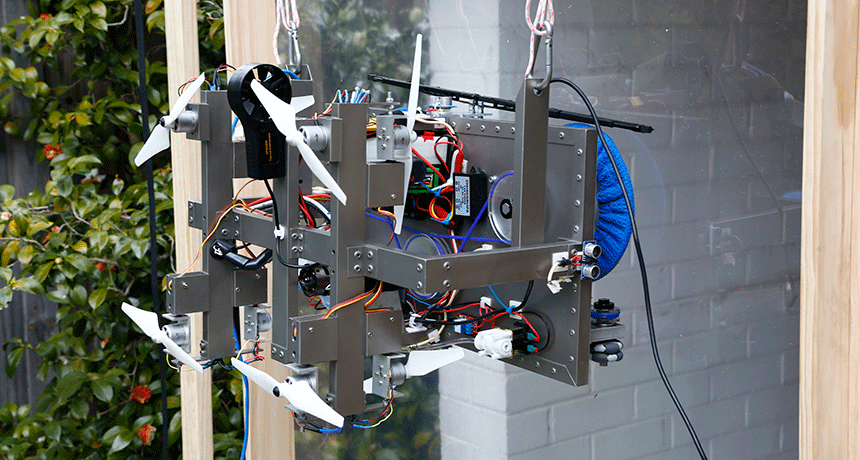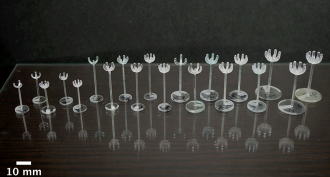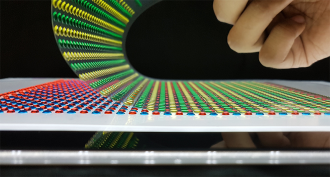Tech
-
 Health & Medicine
Health & MedicineScientists Say: Ultrasound
Ultrasound is a word used to describe any sounds higher than a person can hear. It’s also a technique used to see inside the body.
-
 Science & Society
Science & SocietyHeating up the search for hidden weapons
Using an off-the-shelf camera and an innovative bit of software, a high-school student developed the means to inexpensively detect a hidden weapon.
By Sid Perkins -
 Tech
TechWebsites often don’t disclose who can have your data
Privacy policies don’t reveal much about how websites share a user’s data.
-
 Tech
TechHurricane crisis inspires teen’s water-cleanup system
In the wake of last summer’s devastating Hurricane Maria, a Puerto Rican Intel ISEF finalist developed a do-it-yourself system to create clean drinking water.
By Sid Perkins -
 Earth
EarthRobots and ‘green energy’ win the day at Intel ISEF
The top three awards — each worth $50,000 to $75,000 — went for a window-washing robot, low-cost big batteries and ‘green’ capacitors
By Sid Perkins -
 Psychology
PsychologyTeen fights fake news, one newsfeed at a time
How do we get rid of misleading news? One teen found that warning signs might help, but the most effective option, to him, looks too much like censorship.
-
 Tech
TechThis robot can wash a skyscraper’s windows
Cleaning windows on high-rise buildings can be perilous. But an Australian 12th-grader has created a robot to spare people the risk.
By Sid Perkins -
 Materials Science
Materials ScienceNew black hair dye uses no harsh chemicals
Scientists have developed a new black-carbon-based hair dye. Instead of using damaging chemicals to dye hair, flexible flakes of carbon coat each strand.
-
 Physics
PhysicsAn ancient plant inspires a new lab tool
Researchers have designed a lab tool that moves liquids from one place to another by mimicking a plant called a liverwort.
By Sid Perkins -
 Tech
TechStar Wars‘ cutest droids would get stuck on the beach
On screen, R2D2 and BB-8 travel over every type of terrain. But in real life, any sandy path would stop these droids short.
-
 Tech
TechThis power source is shockingly eel-like
The electric eel’s powerful electric charge inspired this new squishy, water-based new approach to generating power.
-
 Computing
ComputingComputers mine online reviews for signs of food poisoning
Health officials are getting help in identifying restaurant goers who got food poisoning by teaching computers to scout social-media posts for signs of illness.